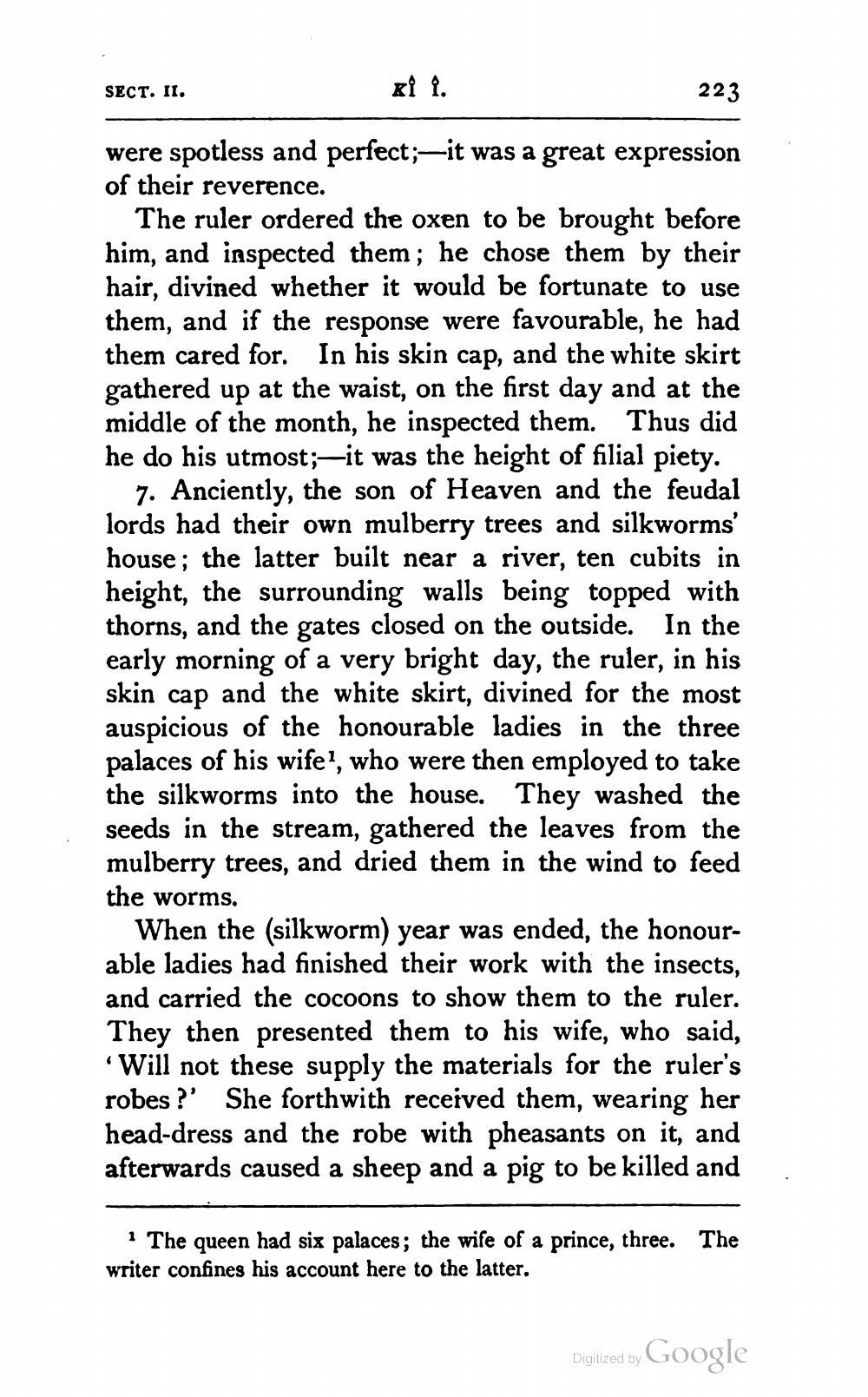________________
SECT. II.
KÝ f.
223
were spotless and perfect;—it was a great expression of their reverence.
The ruler ordered the oxen to be brought before him, and inspected them; he chose them by their hair, divined whether it would be fortunate to use them, and if the response were favourable, he had them cared for. In his skin cap, and the white skirt gathered up at the waist, on the first day and at the middle of the month, he inspected them. Thus did he do his utmost;—it was the height of filial piety.
7. Anciently, the son of Heaven and the feudal lords had their own mulberry trees and silkworms' house; the latter built near a river, ten cubits in height, the surrounding walls being topped with thorns, and the gates closed on the outside. In the early morning of a very bright day, the ruler, in his skin cap and the white skirt, divined for the most auspicious of the honourable ladies in the three palaces of his wife?, who were then employed to take the silkworms into the house. They washed the seeds in the stream, gathered the leaves from the mulberry trees, and dried them in the wind to feed the worms.
When the (silkworm) year was ended, the honourable ladies had finished their work with the insects, and carried the cocoons to show them to the ruler. They then presented them to his wife, who said, "Will not these supply the materials for the ruler's robes ?' She forthwith received them, wearing her head-dress and the robe with pheasants on it, and afterwards caused a sheep and a pig to be killed and
The
· The queen had six palaces; the wife of a prince, three. writer confines his account here to the latter.
Digitized by Google




